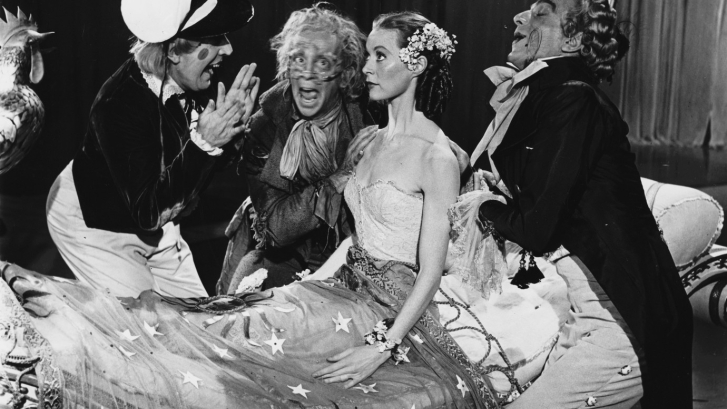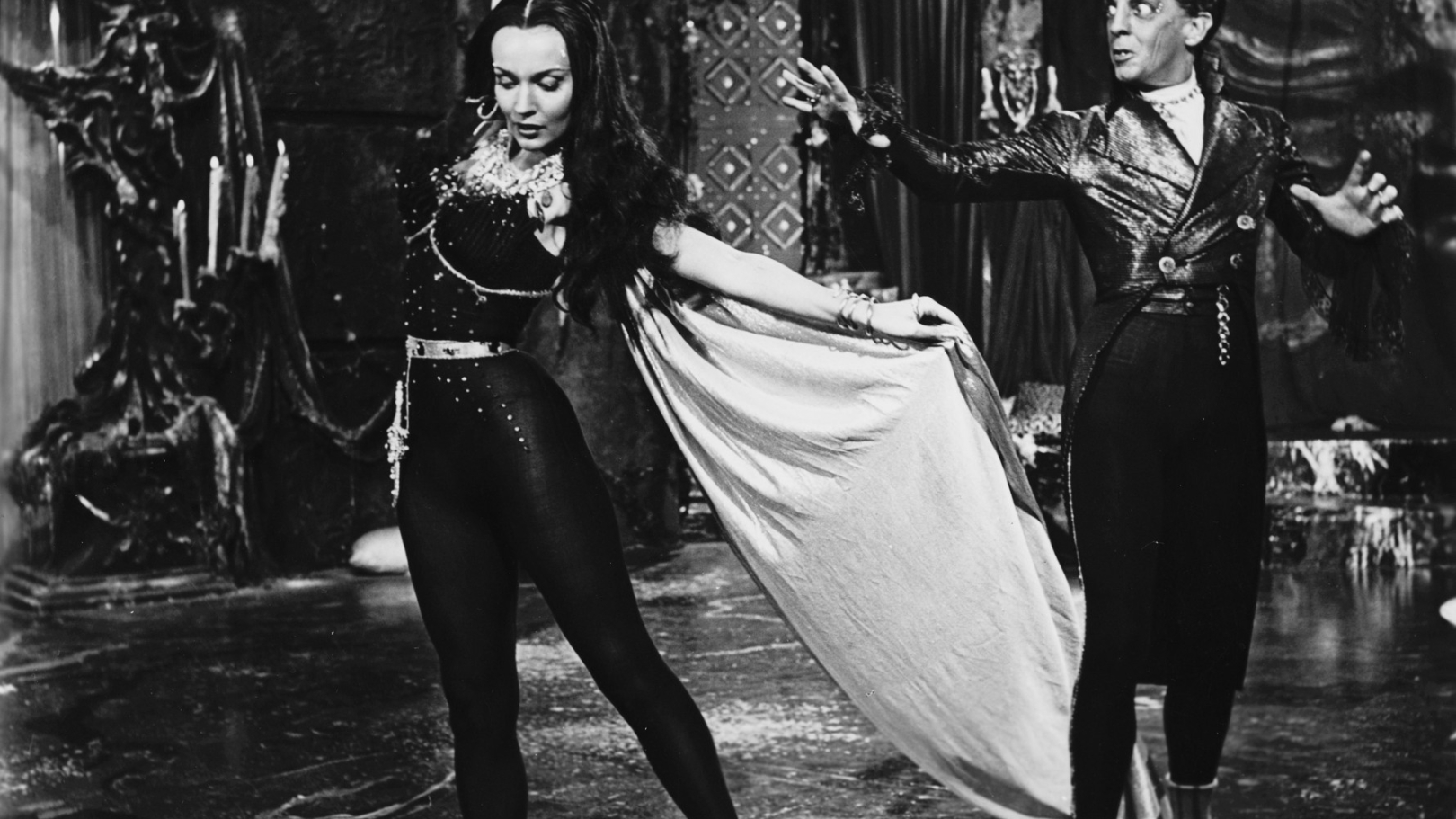Tales Of Hoffmann

Hoffmann, intoxicated with wine and his passionate love for Stella, the dancer, tells the stories of his three great loves:
Olympia
The tempter, assuming the identity of Coppélius, embroils Hoffmann in a love affair with Olympia, who is, in fact, an ingeniously made automaton. To Hoffmann, viewing her through magic glasses, she is the most enchanting living being he has ever seen. But the moment the glasses break, the magic vanishes and Coppélius destroys the illusion formed by Olympia.
Giulietta
In Venice, the tempter, now in the form of Dapertutto, uses Giulietta, the most famous courtesan, to steal her lover’s soul. In the case of Schlémil, the pledge is his shadow, in Hoffmann’s it is his reflection. Hoffmann kills his rival Schlémil in a duel in order to obtain the key to Giulietta’s apartment. But when he fails to find his beloved, he hurls the key at the blank mirror, smashing it and breaking the evil spell.
Antonia
Hoffmann loves Antonia, a beautiful woman gifted with a divine voice, who is held prisoner by her father. He forbids her to sing because he is afraid that as a consumptive she will suffer the same fate as her dead mother, a famous singer. The tempter, now assuming the form of Dr. Miracle, feigns the voice of Antonia’s mother in order to persuade her to sing. Her voice joins that of her dead mother in a ghostly duet: Antonia collapses and dies.
TALES OF HO FFMANN is a fanciful and romantic mixture of cinema and opera based Jacques Offenbach’s famous opera. Three tragic loves influenced the life of the poet Hoffmann. In flashbacks, he sees how each inspired him and the ways that each broke his heart. This unique marvel of wonderful music, perfectly choreographed dance, opulent sets and impressive camera work won the Silver Bear at the first film festival in Berlin in 1951 and was nominated for the Grand Prize at Cannes as well as at the Oscars for Best Camera and Best Costume Design. Now star directors, a young Scorsese and a young Romero were avid admirers of the film, both renting the same 16mm copy from a New York film rental.
details
-
Runtime
120 min -
Country
Great Britain -
Year of Presentation
2010 -
Year of Production
1950/51 -
Director
Emeric Pressburger -
Cast
Michael Powell, Robert Rounseville, Moira Shearer, Robert Helpman, Ludmilla Tcherina -
Production Company
The Archers; Vega Film Productions -
Berlinale Section
Retrospective -
Berlinale Category
Feature Film
pictures from the movie

Biography Emeric Pressburger
Educated at the Universities of Prague and Stuttgart, Emeric Pressburger worked as a journalist in Hungary and Germany and an author and scriptwriter in Berlin and Paris. He was a Hungarian Jew, chased around Europe (he worked on films for UFA in Berlin and Paris) before World War II, finally finding sanctuary in London--but as a scriptwriter who didn't speak English. So he taught himself to understand not only the finer nuances of the language but also of the British people. A few lucky breaks and introductions via old friends led to his meeting with "renegade" director Michael Powell. They then went on to make some of the most interesting (IMHO) and complex films of the 1940s and 1950s under the banner of "The Archers". Pressburger often showed a deep understanding of the British only granted to those "outside, looking in". He always prided himself on being "more English than the English". After all, some of us were just BORN English, but he CHOSE to become English. He spent his last days at Shoemakers Cottage, Aspall, Stowmarket, Suffolk in the English countryside that he loved so well.
source: wikipedia.com
Filmography Emeric Pressburger
1936 Parisian Life | 1946 Stairway to heaven | 1948 The Red Shoes | 1950 Corazón Indomito | 1955 Fledermaus 1955 | 1957 Men Against Britannia
Biography Michael Powell
Michael Powell was an English film director. He was the second son and youngest child of Thomas William Powell, a hop farmer, and Mabel, daughter of Frederick Corbett, of Worcester, England. Powell was born in Bekesbourne, Kent, and educatetat The King's School, Canterbury and then at Dulwich College. He started work at the National Provincial Bank in 1922 but quickly realised he was not cut out to be a banker. He entered the film industry in 1925 through working with Director Rex Ingram at the Victorine Studios in Nice, France.
source: wikipedia.com